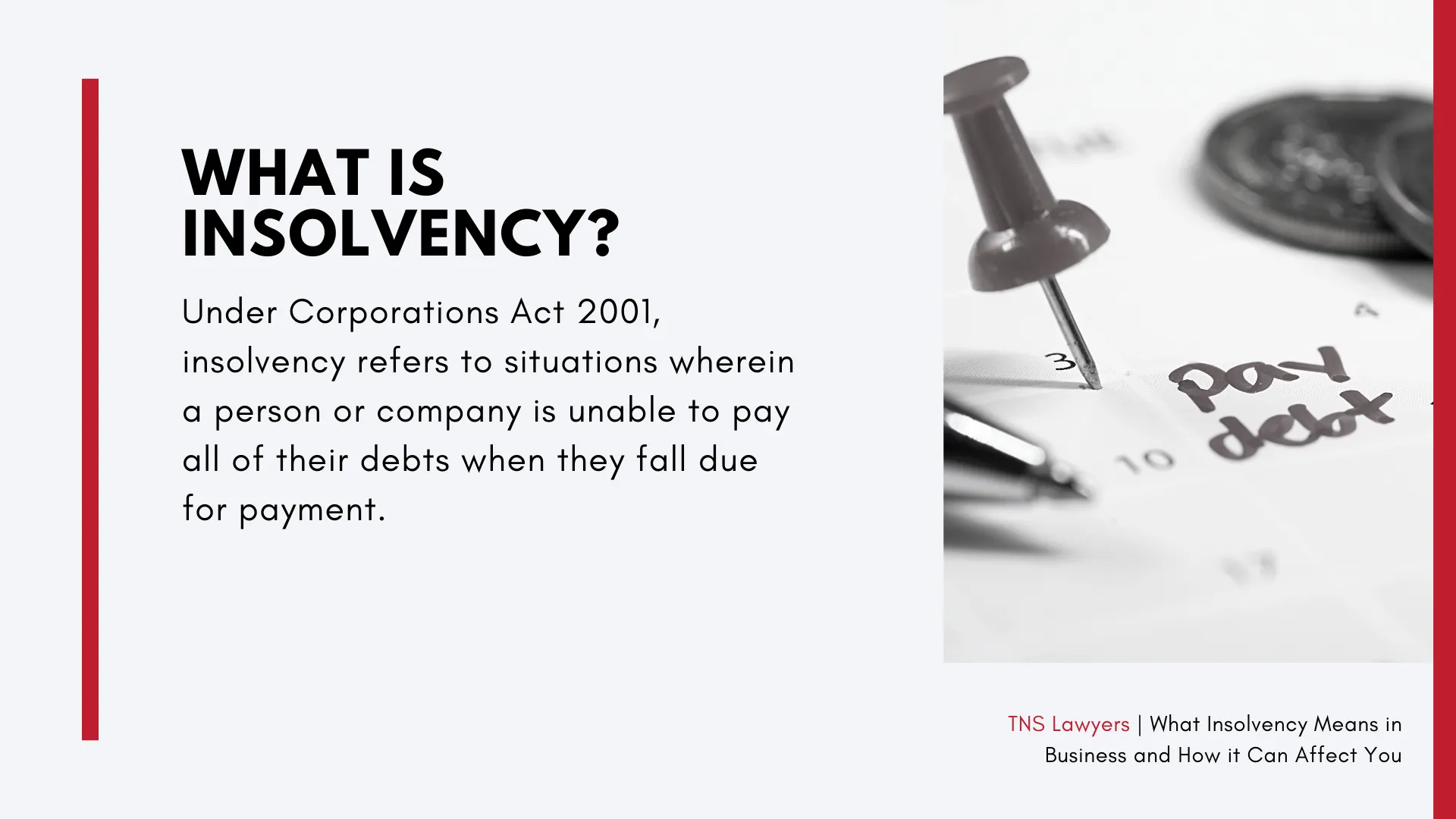The Buzz on Insolvency Practitioner
The Buzz on Insolvency Practitioner
Blog Article
Insolvency Practitioner for Beginners
Table of ContentsHow Insolvency Practitioner can Save You Time, Stress, and Money.Getting My Insolvency Practitioner To WorkOur Insolvency Practitioner StatementsThe Best Guide To Insolvency PractitionerEverything about Insolvency PractitionerNot known Incorrect Statements About Insolvency Practitioner Top Guidelines Of Insolvency Practitioner
Bankruptcy is when liabilities are more than the worth of the company, or when a debtor can not pay the financial debts they owe. A firm can become financially troubled due to a variety of scenarios that lead to inadequate cash money circulation. When confronted with bankruptcy, a business or person can call creditors straight and restructure financial obligations to pay them off.
Business owners might get in touch with financial institutions straight and restructure debts right into more workable installations. Creditors are typically open to this strategy since they desire to be settled and avoid losses, also if the repayment is on a postponed timetable.
The owner produces a proposition describing exactly how the financial obligation might be reorganized using expense decreases or various other prepare for support. The proposition reveals creditors how business may produce adequate capital for successful operations while paying its debts. Usually, a forgiven financial debt may be thought about revenue by the Internal Earnings Solution (INTERNAL REVENUE SERVICE).
Insolvency Practitioner - An Overview
When an organization needs to pay raised costs for products and services, the company passes along the cost to the consumer. Instead than pay the raised cost, many consumers take their service in other places so they can pay much less for a service or product. Losing clients leads to losing revenue for paying the firm's creditors.
When operations stop, so does the company's revenue. Some companies become bankrupt because their goods or services do not develop to fit customers' changing requirements.
Unknown Facts About Insolvency Practitioner
Expenditures surpass earnings and bills stay unpaid. Types of insolvency include cash-flow insolvency and balance-sheet bankruptcy. Cash-flow insolvency occurs when a business has the properties to cover their financial debts but they remain in the incorrect form, such as realty rather than liquid funds. Balance-sheet bankruptcy, on the various other hand, shows an absence of possessions in any type of kind to cover financial obligations.
The IRS states that a person is bankrupt when the total obligations exceed total assets. Insolvency Practitioner. A personal bankruptcy, on the various other hand, is a real court order that portrays exactly how an insolvent individual or organization will settle their financial institutions, or how they will sell their possessions in order to make the settlements
Not known Factual Statements About Insolvency Practitioner
If that scenario prolongs longer than expected, it can result in bankruptcy. When a company or individual is bankrupt, they can not satisfy their monetary responsibilities. Solvency is when you have enough funds to cover the payments you owe. A company is considered solvent when they have much more assets than obligations.
:max_bytes(150000):strip_icc()/Liquidation-4193561-Final-699e67d885c243c39cac2985b16d51cb.jpg)
Recognizing the elements that can cause bankruptcy, such as overspending, can help you prevent insolvency and its consequences.
Insolvency Practitioner Things To Know Before You Get This
It is well known that supervisors and officers of firms (and supervisors of minimal obligation firms) owe fiduciary obligations to their companies and their shareholders (or members). These fiduciary commitments are specified by state statutes and, though there are variations from one state to another, they normally include an obligation of loyalty and a duty click of treatment.
The duty of treatment needs directors and policemans to exercise diligence, to make educated choices, and to act in great belief to ensure that their activities remain in the very best passion of the business. Beyond the scope of this conversation, some states enable these obligations to be limited either by so noting in the organizational documents or complying with various other demands.
The 6-Minute Rule for Insolvency Practitioner

Take care about giving investors advantageous therapy at the expenditure of creditors (e.g., accrediting and moneying a reward or a stock redemption). Be careful about advantageous therapy in between courses of shareholders. Make affordable efforts to learn all the realities before taking a particular strategy; supervisors should genuinely think that any type of choices made remain in the very best interests of the corporation in its totality (i.e., choices will certainly be examined in hindsight because of the impact of such actions on the firm).
In any type of insolvency or bankruptcy proceeding, repayments made to certain lenders at the expense of various other lenders can be clawed back, particularly if there is some connection between the firm and the financial institution. Consider suggesting at a yearly shareholder meeting (or any kind of various other conference of investors) a resolution verifying that all previous company decisions and activities taken by the supervisors and policemans of the corporation were absorbed great confidence after a workout of sensible care.
The Best Strategy To Use For Insolvency Practitioner
Completely divulge any kind of personal or service relationships with events beyond of transactions involving the company to stay clear of the appearance of a conflict of rate of interest. In assessing possible fund raising purchases or a sale of possessions of the distressed company, realize that these purchases might be scrutinized later in light of any type visit this page of succeeding growth of supervisors' fiduciary obligations to consist of lenders.
Report this page